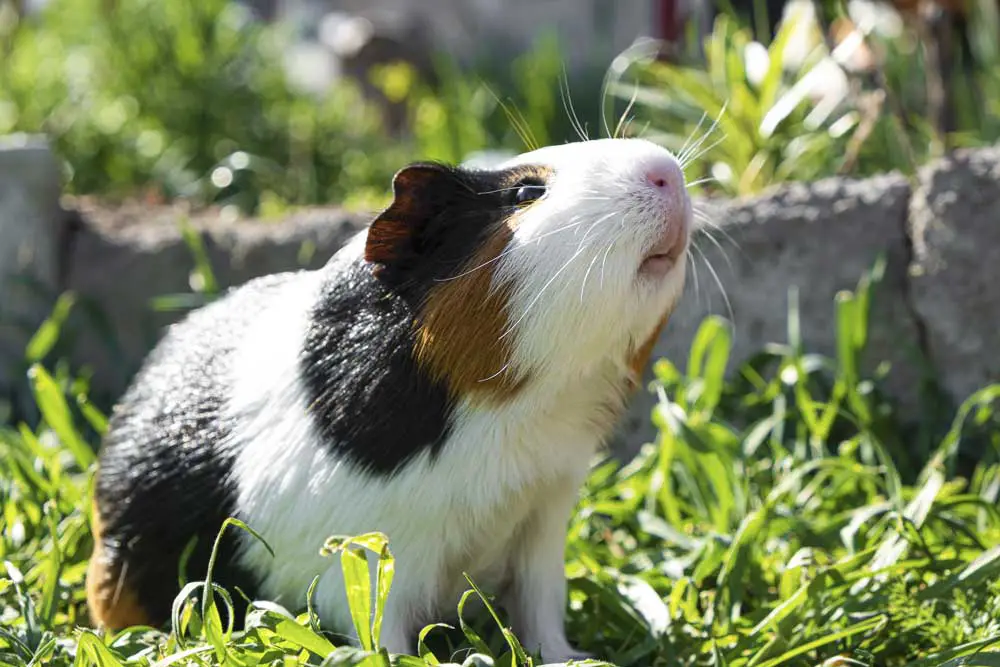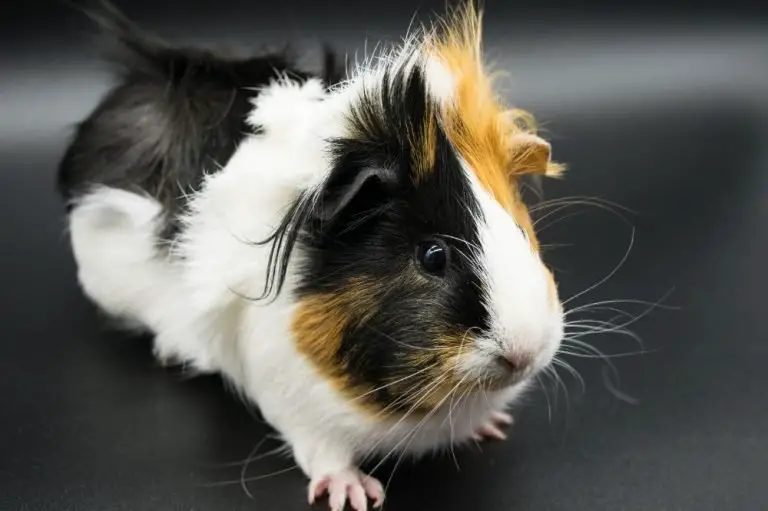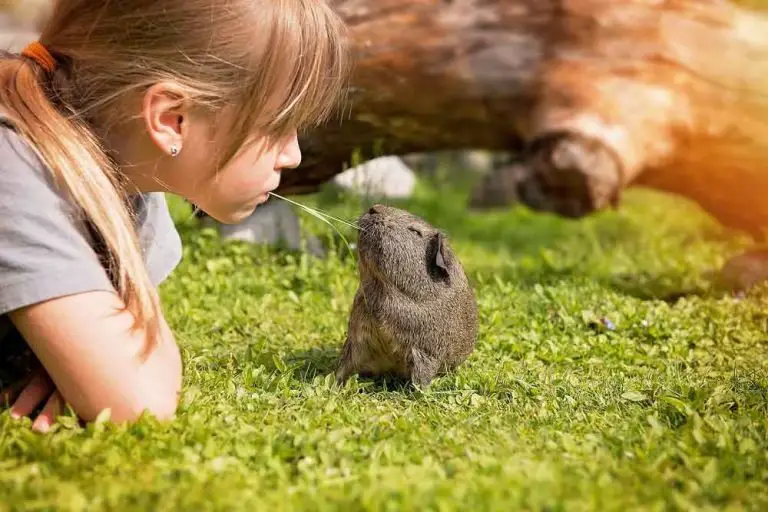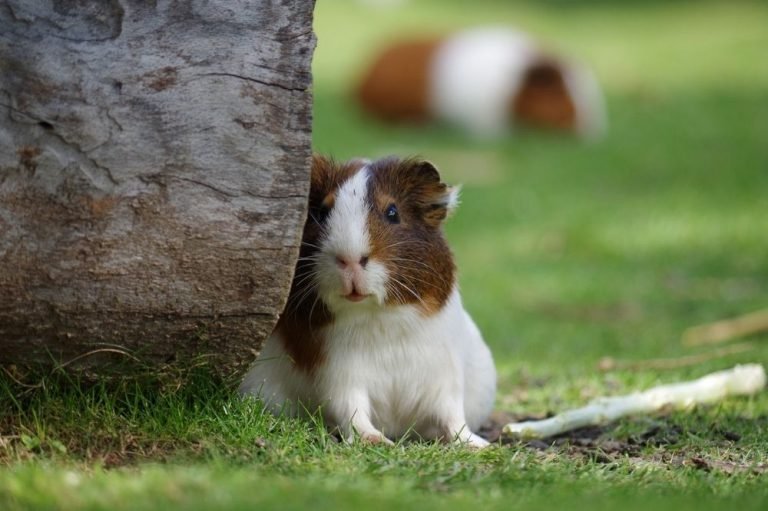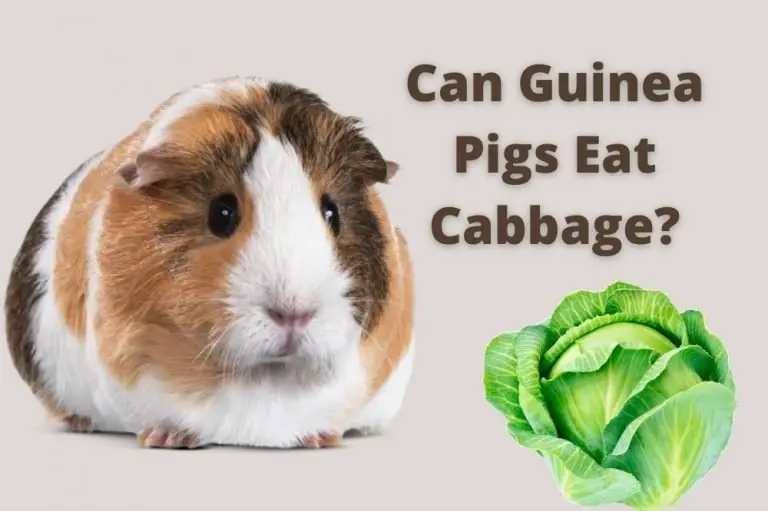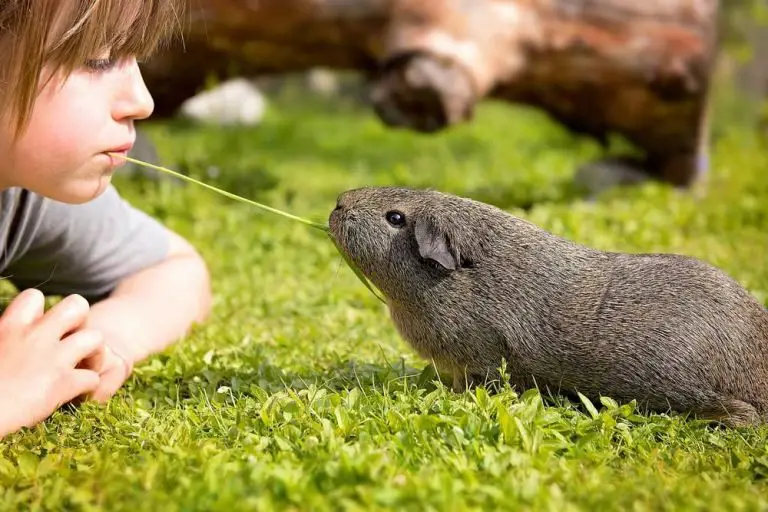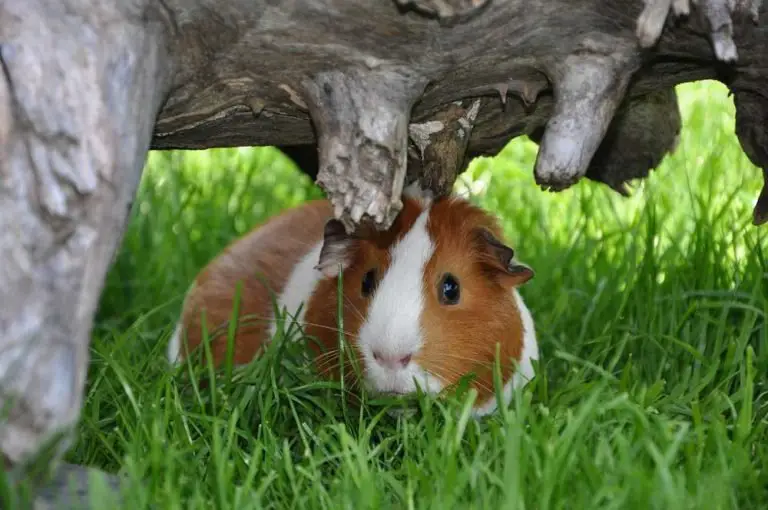Do Guinea Pigs Attract Mice? (Explained)
Guinea pigs are social animals that can get quite lonely when alone. Being friendly and chatty, they love living in groups.
Usually, where guinea pigs are, you are most likely to spot a mice or two. Could the social nature of guinea pigs be the reason behind it?
Do guinea pigs attract mice?
Guinea pigs do not really attract mice. They are clean animals that like cleaning themselves ever so often. So naturally, Cavies don’t have smells that would draw mice to them. When mice keep coming to your guinea pig’s hutch, however, it’s mainly due to three basic reasons. They are there because of the guinea pig’s food, poop buildup, and untidy living conditions.
How are mice attracted?
Stick with me, and let’s find out.
Food
Food is the major attractor of mice to your guinea pig’s hutch. The mice usually come in searching for food which is easily available as the fruits, vegetables, and dried foods that you feed your guinea pig.
Untidy Living Conditions
Guinea pigs are fond of making a place untidy by scattering their food all over the place and pooping everywhere. This draws in mice who enjoy looking for food in such places.
Poop
Sometimes not all eaten food gets digested and this happens even to guinea pigs. The undigested food found in their poop will lure in mice for a really enjoyable feast.
Water
Although it doesn’t happen as often, mice can sometimes sneak into a guinea pig’s hutch to have a sip of water.
Cozy Home
Your guinea pig probably has a warm cozy hutch that mice will find comfy enough for not only living in but also giving birth in.
Why get rid of mice
Now that we know what attracts mice to your guinea pigs, should we get rid of them? Mice are cute little creatures that are quite adorable. But when they are a threat, their cuteness shouldn’t count.
Mice are incontinent animals with small uncontrollable bladders. They cross infect diseases through their urine and droppings to both the guinea pigs and their owners.
Common infections are leptospirosis, tularemia, salmonella, antivirus, and lymphocytic choriomeningitis. (LCM). They are risky to you, kids, and other pets you may have.
It’s highly advisable to rid yourself of them. But the question is how?
6 Ways to get rid of mice
Mice reproduce really fast. In fact, the saying goes that if you see one mouse there are probably three nearby.
It’s very smart to start getting rid of them when you spot one because if you don’t, it will become a mice infestation which is harder to manage.
There are various ways of handling mice. Let’s get straight into them.
1. Small Meals
Sometimes you can unknowingly be giving your lovely pet more food than they actually need. A good sign that you are overfeeding the animals is if you keep finding food leftovers.
The smell of the leftovers will attract mice. You should instead give guinea pigs small amounts of foods that they can easily finish at a time.
A good tip is to feed them at intervals e.g. 2-3 times a day.
2. Clean Leftovers
If your guinea pig has a tendency of always leaving over food, make sure to clean it up as soon as possible. Do not leave it lying there long enough for mice to catch on the smell.
A good tip is to clean an hour after feeding them. This teaches them to eat fast and helps you know how much food they need per meal.
Always ensure to clean up all foods before going to sleep and not leave it there overnight.
3. Apply repellents
A great repellent is peppermint essential oil. Peppermint contains menthol which irritates the nostrils of mice which have really sensitive smell.
Guinea pigs are also very sensitive to strong smells to the extent of getting sick. Always ensure that you do not apply repellents in their presence or near their dwellings.
Dilute peppermint essential oil in water and spray around, or dip several cotton balls in the oil and put them in the places they usually come in through.
Other effective mice repellents are cayenne pepper, bleach, and dryer sheets. If you use dryer sheets, place them in entry holes, and change them whenever their scent is no longer strong.
4. Mice traps
Traps usually get different reactions in people. There are those in support of humane mice traps that only capture the mouse for you to release them elsewhere. Then there are those who support normal traps which instantly kill the mouse because if it’s killed, that’s permanent and it cannot come back.
Some mice are so cunning that they can easily bypass the trap and eat the baited food without being caught. Do cover up all their entry holes.
5. Hoist the hutch
If the hutch is on the ground level, try to hoist it a little higher to make it harder for mice to get in. Although mice can climb the hutch, they prefer getting food from lower grounds where it’s easier to reach.
The use of metal legs makes it even harder for mice to climb up. A hutch with small holed wire mesh will prevent the mice from getting in. But always go for extremely tiny-holed mesh because if a pen can fit in the hole, a mouse can fit in too.
6. Tidy up often
Do clean up the guinea pig’s entire dwelling often. Whether it’s indoors or outdoors, make sure to change the hay or fleece and clean floors on a regular basis. Mice could even be living under the hutch without you knowing.
Keep all food in tightly sealed containers and try to feed the guinea pigs using containers instead of pouring food on the ground. If a mouse eats baited food and pees in a guinea pig’s hutch, the guinea pig can be poisoned.
Conclusion
It is always easier to prevent mice than to get rid of them. Mice never leave on their own as long as there is food. Always keep your guinea pig pets protected from mice to ensure they are safe, happy, and healthy.


